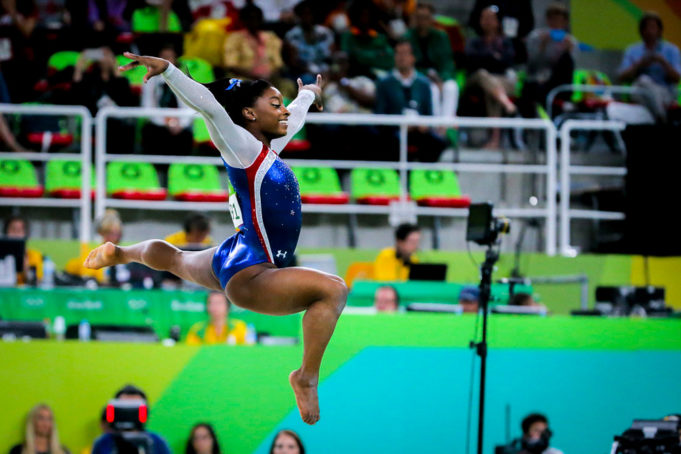In many ways, Americans obsess over the Olympics for the same reasons we cling to the idea of the American Dream. Their messages are strikingly similar –– that one can achieve greatness through hard work and dedication, that by using every part of oneself spiritually and physically, one can progress to a better place in life. With that similarity comes a matching consequence: that those who need help to face professional or psychological struggles in their pursuit of success are subsequently vilified for their perceived “weakness.”
We saw this ruthlessness on display after Simone Biles decided to withdraw from the Olympic gymnastics finals last week. Would-be sports critics across the country took to social media to spew vitriol at Biles and her decision –– which stemmed from her wanting to address her extreme depression without competitive pressure. Her critics have called her “selfish” for taking another athlete’s spot on the global stage before stepping away from the sport last-minute. They questioned her dedication to her sport (despite her being one of the most decorated gold medalists in gymnastics history), accusing her of not being “tough enough” to handle the rigors of professional sports.
There’s no need to dig into the specifics of why such accusations are ridiculous –– obviously, a bunch of couch potatoes accusing an Olympian of “not wanting it badly enough” is laughable. However, this outrage is a reflection of a deeper problem, namely that we want to see the exceptionalism without nurturing the humanity behind it.
Americans practically fetishize competitive sports because they afford us the opportunity to prove our brilliance to others. For Americans, the Olympics allow our athletes to adopt the label of “the best in the world,” which then is repurposed and made nationalistic –– it becomes “America is the best in the world.” An ever-present subtext to this is the unspoken suspicion that anyone who’s not proud to be American is a danger to the nation itself.
That’s where the American Dream™ comes into play, supporting individualism primarily through anecdotal examples and inspirational quotes. What isn’t often discussed is the fact that the American Dream is not a universal possibility. We now know that certain people face more challenges to achieving an education, finding high-paying jobs, and supporting their families than others. For example, a Black man born into generational poverty in Texas does not receive the same education as a middle-class white teenager from New Jersey.
Many Americans are not given the chance to achieve the American Dream, not because they “don’t want it” enough but because the idea is unrealistic and based on variables that come only from a life of privilege. Still, the idea of American exceptionalism and The Dream™ are deeply ingrained in the national psyche. For The Dream to be equally attainable for all Americans requires us to address inequality in the first place –– in other words, we’d have to provide extra assistance to those who have fewer opportunities than middle-class whites.
However, that need for assistance is considered loathsome to some in this country. Some people don’t want to be reminded that America isn’t perfect and that we have a long way to go as a society before we can proudly proclaim our righteousness over others.
That is where the Simon Biles haters are coming from. The public disdain for her decision to set aside winning gold for America –– in favor of taking care of her health –– is an extension of the unhealthy expectations inherent to our national identity. Athletes aren’t supposed to step away from sports. They’re supposed to “power through” the brain injuries, the pain, the psychological strain, and the insurmountable public pressure and still make America look good.
We don’t want to deal with mental health issues or address social challenges associated with dangerous hyper-competition. We just want to take credit for the exceptional people who entertain us. We want to wave our flag and toot our horns and take credit for someone else’s achievements, as though we all pitched in to make it happen. Meanwhile, we can’t stand to face the inconvenient truth behind the mask of exceptionalism.
The response to Simone Biles is our reminder that many Americans are even willing to turn on our exceptional people once they prove to be imperfect –– to cast talented young people into disgrace once they remind us that they’re human, too.
These critics do not speak for the majority of Americans, and the overwhelming consensus on social media is that more Americans support her decision than oppose it. Still, it’s wretched to see how many in this country will not grant dignity to those who suffer yet expect them to suffer with dignity.
Follow Erin Ratigan @erinratigan












